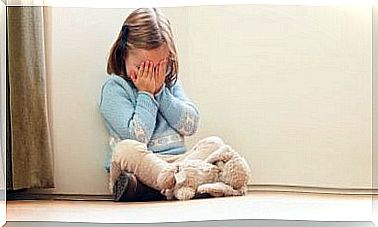Infallible Tips For Raising Children

As human beings we are all prone to failure, that is why we cannot speak of some infallible method, especially when it comes to raising children. However, some tips can be very valuable in getting the education we want.
In general, it is very convenient to seek the good advice of our grandparents, other parents and families who have successfully overcome the raising of their children; We can also use the opinion of specialists.
That is why this time we will focus on advice that could really be infallible if we know how to channel it according to the type of family we have.
We can say that the proper application of these recommendations can generate positive results, the effectiveness of which may not be questioned by anyone.
Tip # 1: Teach by example
Children are formed based on our experience and according to our daily development, that is why we achieve a family balance. For this to be possible, everyone must follow a pattern, which is basically the example we give them.

It is normal for children to imitate the behavior of their parents, even if they are not good. Being attentive to our behavior is a rule to form the correct habits, because a sermon will not be worth anything if they do not see us acting in the way we ask.
Tip No. 2 Adequate communication
Learning to communicate with children is a process that begins from pregnancy. But once children grow up, it is necessary to adjust to their level of understanding in order to focus on what they are able to express and what they can understand.
Sometimes we speak to children as if they were adults and set unclear or incomprehensible rules for them, leading to disobedience or confusion. Good communication is based on having an understanding, it is knowing how to listen and promote this practice with confidence in the other person.
Being in total harmony with respect to dialogue, helps families to solve many problems and avoid many others.
Tip No. 3 Avoid falling into disqualifications
In certain cases the parents’ way to correct is to disqualify their children for wrong actions. It is even possible that we disqualify those behaviors that are not to our liking even if it is not a bad thing.
The use of disqualifying adjectives can be counterproductive in the self-esteem of children, it also generates some suspicion towards whoever expresses them. Those words that we may use to reproach them for something can be very harmful, as well as compare them or suggest that they learn from other children.
Tip # 4 Let them make mistakes
Many times parents fall into overprotection, something that prevents the little ones from experimenting and developing on their own. In general, the fear we feel is not the same as they may feel, so it is important that we let them take certain risks.
Letting children experiment for themselves also helps them improve their confidence and self-esteem ; at the same time, it is a way that mistakes teach him to cope and understand that his parents will not always be there to help him.

Tip # 5 Offer positive encouragement
Using punishment is a common way of raising children, however, it has been proven that not punishing them is not as efficient as reinforcing them in a positive way. It is very imperative that parents have affectionate gestures with their children and that they express to them that their good actions have value.
Both disqualifications and punishments contribute to the emotional deterioration of the child and lead to a weak opinion of himself. Hugs and praise as rewards for behavior can be very effective, but as long as they are done in moderation and at the right time.
Although the behavior is not as expected, to correct them, firmness and objectivity are necessary, avoiding negative words or speeches that contribute to developing their insecurity.
Tip No. 6 Discipline and confidence with limits
Neither extreme is totally good, so during parenting it is important that the relationship is balanced. There must be a limit to discipline them, because it is not convenient to exaggerate in it; that is, flexibility is necessary to promote better understanding.
Similarly, providing affection and fostering a trusting relationship does not mean that children can stop respecting their parents. Although we can talk about a relationship of friends so that the little ones feel free to talk with their parents, there must be a limit, because when it comes to imparting discipline there must be respect.









